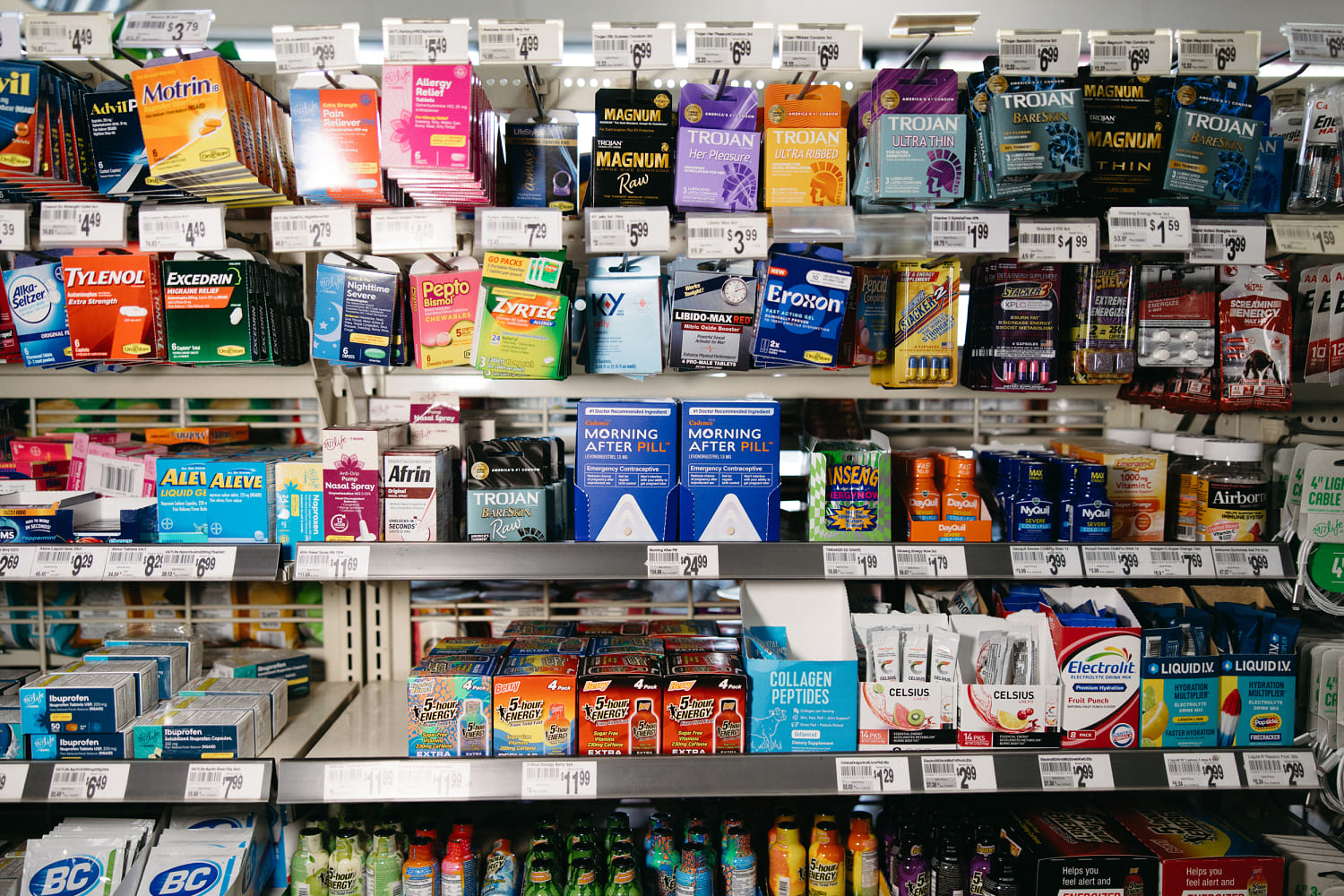
Why 24-hour access matters
At the same time, some birth control products have become more easily available through online purchasing and over the counter, including Opill, which last year became the first non prescription birth control pill available in the United States. New methods of birth control have also come to market, including long-acting implants, patches and Phexxi, a hormone-free vaginal gel.
Emergency contraception is available without a prescription, a fact that many women don’t know, according to a poll conducted by KFF, a health policy research organization. Indeed, half of women who live in states where abortion is banned either incorrectly think emergency contraceptive pills are illegal in their state or say they are unsure, the poll found.
Still, younger women are more likely to report that they’ve used emergency contraception: 44% of women ages 15 to 24 and 40% of women ages 25 to 34. And online data shows that searches for emergency contraception often happen later at night, Voyten said.
“And 7-Eleven is open,” she said.
Megan Kavanaugh, a principal research scientist with the Guttmacher Institute, a reproductive health research group, said 99% of women of childbearing age in the United States have used some form of contraception, including natural family planning, “over the course of their lifetime,” a trend that holds true across all demographics, including religious beliefs. Less than 1 percent of women use fertility awareness based methods.
And the use of emergency contraception has also risen in recent decades. Researchers at KFF found that one-third of women ages 15 to 49 who have ever had sex with a male in the United States have used it.
“People use EC for a lot of reasons,” Kavanaugh said. “The condom fails, they haven’t been using birth control or they may need to use it after sexual assault.”
Cost, however, can be a barrier for some women, she said, noting that over-the-counter products like Plan B One Step — another emergency contraceptive — can cost upwards of $50. “That’s a prohibitive price point,” she said.
Condoms are inexpensive but usually outside the control of women having sex, Kavanaugh said. “It’s all part of the misogyny that we live in that we price products differently,” she said.
Cadence’s emergency contraception is priced around $25 per box for a one-time dose. A study of consumer behavior conducted by the manufacturer, Cadence, found that women questioned the quality and efficacy of a birth control product priced below $15, but products priced more than $30 were prohibitively expensive.
Polling shows that a broad majority of Americans support contraception and oppose efforts to restrict its access.
Stored in lockboxes or behind the counter
Still, getting help in preventing pregnancy can often be a challenge, said Dr. Amanda Bryson, a pediatrician and adolescent medicine specialist at the University of California, San Francisco and an assistant professor of pediatrics.
Bryson, who provides care to adolescents and young adults and is not affiliated with Cadence, said that those barriers can include a need for confidentiality, as well as a lack of transportation, financial means or health insurance. And even though emergency contraception is available without a prescription or age requirement, pharmacists often stock the product in lockboxes or behind the counter, requiring teenagers and young adults to seek out a store clerk.
In convenience stores, the pills are generally stocked next to condoms, not behind the counter.
Finding emergency contraception in rural areas can also be difficult, particularly in towns without a pharmacy or a drugstore.
Bryson recalled one patient who called, after-hours, seeking emergency contraception. After counseling the patient, who had insurance, Bryson called in a prescription to a local pharmacy, but it was out of stock. Another pharmacy, however, had over-the-counter medication — for $50. The patient bought the pills there.
“It shouldn’t be this hard,” Bryson said. “This young adult had information about EC, she had a physician who could counsel her, she knew she could reach me after hours, she had insurance, she was able to drive, and this was still an immense barrier.”
She added: “In situations similar to this one, having a lower cost pill in convenience stores with expanded hours could be really meaningful.”
“Taking care of your sexual health should not be stigmatized,” Bryson said, adding that “availability and visibility” of birth control for women on convenience store shelves can help combat stigma.
Cadence officials say they would like to expand their market on college campuses, and perhaps even to vending machines, noting that it is a “very profitable product.”
And though Plan B, a widely known emergency contraception brand, is not available in convenience stores, the medication is distributed at CVS, Walgreens, Walmart and other retailers and can be delivered by UberEats, Doordash, and Instacart, according the company.
While retailers in some areas “have objections about bringing in the product,” those concerns are often overtaken by demand, Voyten said.
“There are some who say, ‘I don’t believe in this,’” she said. “’But I know my customer needs it.’”
